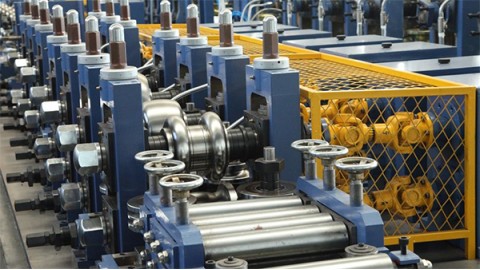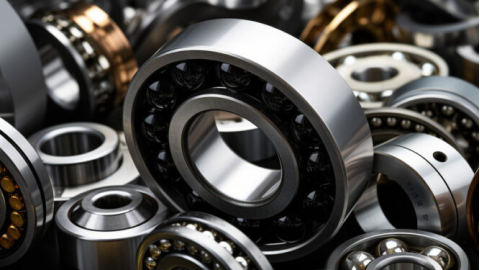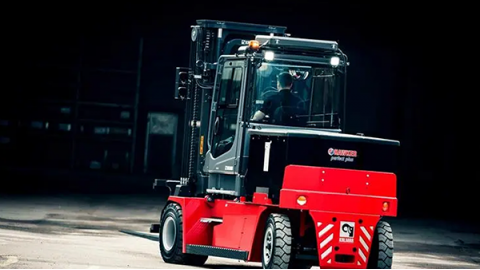Top 10 Industrial Computing Companies
Industrial computing uses specialized computer systems in harsh environments. These systems manage manufacturing automation, process control, and IoT applications. They are built to withstand extreme temperatures, vibration, dust, and electromagnetic interference. Industrial computers offer higher reliability and longer life than consumer-grade PCs. The market is growing fast, driven by Industry 4.0, automation, and the need for real-time data analysis.

Market Leaders
Advantech leads the market with a wide range of Industrial IoT solutions. They provide a complete ecosystem from embedded systems to cloud platforms. Their systems are known for high reliability in demanding conditions.
Siemens is a leader in automation with its SIMATIC industrial PC series. These PCs integrate PLC and HMI functions into a rugged design. They are a standard in many factory automation setups.
Kontron focuses on modular and customized solutions. Their COM Express and SMARC modules are widely adopted. This allows for flexible and scalable system design.
B&R Automation stands out with its real-time control technology. Their mapp modular software framework enables rapid application development. This reduces engineering time for machine builders.
Innovation Experts
ADlink Technology is a leader in edge computing. They offer AI inference platforms with NVIDIA GPUs. They also provide military-grade systems that meet SOSA standards.
Beckhoff promotes EtherCAT real-time Ethernet technology. Their TwinCAT software achieves microsecond-level synchronization accuracy. This is critical for high-speed motion control.
Omron integrates its deep industrial automation expertise. Their IPC series often includes predictive maintenance functions. This helps prevent machine downtime.
Mitsubishi Electric supports factory network integration with its MELIPC series. These systems are compatible with CC-link IE TSN for deterministic communication.
Specialists in Emerging Fields
NEXCOM focuses on 5G industrial applications. They provide uCPE and edge servers for network function virtualization. This is key for modern telecom infrastructure.
IEI Integration develops low-power solutions based on ARM architecture. These are ideal for mobile and deeply embedded applications where power is limited.
Avalue Technology provides rugged panel PCs for medical and retail sectors. Their products feature IP65 protection and optically bonded displays for clear visibility.
Comparing Product Portfolios
High-end industrial PCs often use Intel Xeon processors. They support a wide operating temperature range from -40°C to 85°C. Their Mean Time Between Failure (MTBF) often exceeds 100,000 hours.
Trends in embedded systems include miniaturization, like 3.5-inch single-board computers. Fanless designs are common for better reliability. Modular architectures allow for easy upgrades.
Software support includes Windows IoT Enterprise, Linux distributions, and real-time OS like VxWorks and QNX. Key industrial interfaces include PROFINET, EtherNet/IP, and OPC UA protocols.
Solutions for Specific Industries
Manufacturing applications use machine vision systems, motion control, and SCADA data acquisition. Energy sectors need ATEX-certified explosion-proof equipment and grid-level reliability.
Transportation computing requires EN 50155 railway certification. It also needs wide voltage input, typically 9-36VDC. Medical devices must comply with IEC 60601-1 safety standards and UL/EN 62368 certification.
Future Trends
Edge AI integration is a major focus. Companies are launching inference platforms with TPU or GPU acceleration. Support for Time-Sensitive Networking (TSN) enables deterministic Ethernet communication.
Functional safety and cybersecurity are increasingly important. Look for IEC 61508 SIL certification and IEC 62443 compliance. Hybrid criticality systems allow both real-time and non-real-time tasks on the same hardware.
Sustainable design includes using low-power processors like Intel Atom and recyclable materials.
How to Choose an Industrial Computer
evaluate the environmental rating. Check the IP protection level and anti-vibration standards. Confirm necessary certifications like UL, CE, and FCC. Ensure long-term lifecycle support, typically a 5-7 year supply guarantee.
Choose based on your application. Prioritize reliability for process control. Focus on computing performance for machine vision. Select wide-temperature operation for outdoor use. The future of industrial computing points toward more integration, AI-driven operations, and strong cybersecurity.




